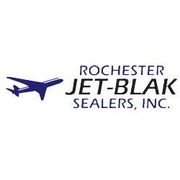
If you’ve recently had concrete work done, it’s time to start thinking of how to protect your investment. While concrete is known for its durability, it lasts longer and performs better if it’s sealed. Concrete sealers extend the life of your concrete and provide many other benefits. If you’re new to the concept, here’s a closer look at the process and how it will benefit you.
What Is Concrete Sealer?
Sealers are substances applied to concrete by either forming a thin film over the surface or by getting inside and forming bonds. There are two main types to choose from.
Topical sealers form a layer on the surface of the concrete and provide stain resistance and protection from wear. They also create either a glossy or wet appearance. This sealer type is optimal for preventing stains from grease and oils. The most common types of topical sealers are acrylic, urethanes, and epoxies.
Penetrating sealers, on the other hand, get inside the concrete and create bonds that create surface tension. Unlike topical sealers, penetrating varieties offer no shine or color, acting as an invisible barrier to protect against salt and water damage. Penetrating sealers come in several varieties; the most common are silanes, siloxanes, and fluoropolymers.
How Is Concrete Sealer Applied?
 Concrete sealer is rolled, broomed, or sprayed onto a clean, dry concrete surface. Penetrating sealers generally require only a single coat, but topical sealers may require two. The setting process takes only a few hours to feel dry to the touch, but take 24 to 48 hours to become dry enough to be walked on. The specifics of the application will depend on the type of sealer.
Concrete sealer is rolled, broomed, or sprayed onto a clean, dry concrete surface. Penetrating sealers generally require only a single coat, but topical sealers may require two. The setting process takes only a few hours to feel dry to the touch, but take 24 to 48 hours to become dry enough to be walked on. The specifics of the application will depend on the type of sealer.
What Are the Benefits of Sealing Concrete?
Sealed concrete is considerably more durable than untreated material. Concrete sealers help to protect it from the freeze and thaw cycle that occurs each winter. Because concrete is a porous material, it’s susceptible to moisture. When moisture gets into concrete and freezes, it causes expansion, which in turn causes fissures and cracks. Moisture in concrete can also lead to mold and mildew, leaving green stains that are difficult to remove. Another advantage to sealing concrete is the protection it provides from the damaging UV rays of the sun that cause uneven discoloration.
Got questions about which concrete sealer is right for you? The experts at Rochester Jet-Blak Sealers, Inc., are ready to help. For over 30 years, this family-owned business has been supplying contractors with the materials and equipment they need to take on their concrete and asphalt projects. Visit their website to learn more about their products and affiliations. Give them a call at one of their convenient New York locations to speak to a member of their friendly and knowledgeable staff: (585) 436-5051 for Rochester, (315) 882 -7843 for Syracuse, or (315) 759-3037 for Westmoreland.
About the Business
Have a question? Ask the experts!
Send your question

